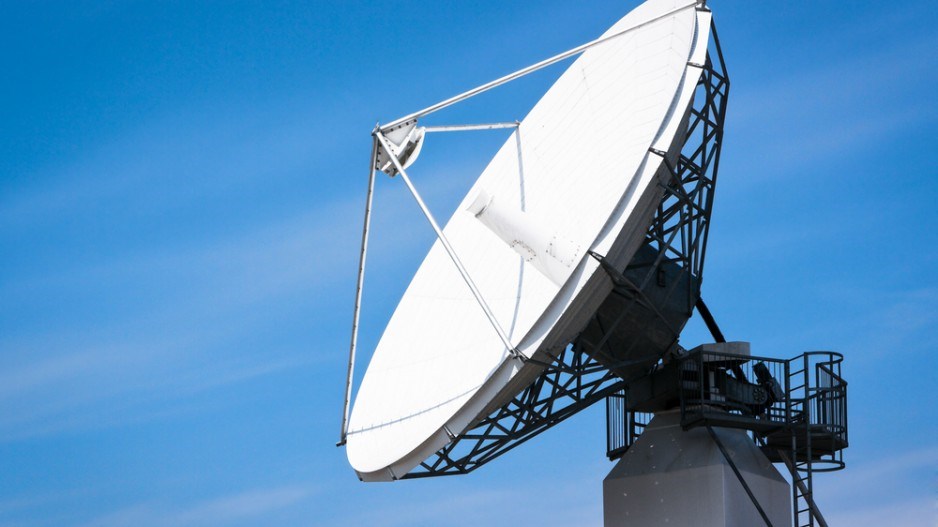Washington's recent decision to review its business with a Vancouver-based defence communications technology firm after the company’s acquisition by a Chinese corporation highlights the tightrope that similar B.C. companies might have to walk in catering to rival geopolitical players, observers say.
In late June, the public debate on Shenzhen-based Hytera Communications Corp. Ltd.’s purchase of Norsat International Inc. (TSX:NII) got so intense that Prime Minister Justin Trudeau had to publicly defend Ottawa’s decision to forgo a formal security review on the deal after an initial review showed “no risk to national security.”
Also in June, the U.S. Department of Defense said it is reviewing all business with Norsat after the Hytera acquisition approval. Norsat, which makes satellite communications systems with defence applications, has the Pentagon and the Canadian Coast Guard among its customer base.
Andreas Schotter, professor of global strategy at the University of Western Ontario’s Ivey Business School, said losing defence-related business with the United States is a real concern for Canada’s tech sector if it ventures too close to Chinese interests in sensitive fields. But he added that the current frosty trade relations between Washington and Beijing could also be a key factor in B.C. defence-tech companies attracting more interest from China.
Losing American business “is a real risk in an era where growing state capitalism and political populism clash more and more frequently,” Schotter said. “I believe there is growing Chinese interest in investing in Canada, period, without specifically looking at the tech sector. However, the growing protectionism of the U.S.A. fuels Chinese interests in Canadian tech firms even further.”
According to Canadian statistics, more than half of Canada’s exports of military goods/technology (valued at $676 million) go to the United States. As of 2015, mainland China received only $41,585 in defence-related exports from Canada, although the Chinese special administrative region of Hong Kong was Canada’s fourth-largest military export destination (at $48 million).
David Perry, senior analyst and fellow at the Canadian Global Affairs Institute, said a large portion of Canada’s defence business with Washington is clearly defined; often, if a Canadian company agrees to sell a product to American defence or military interests, it cannot sell that product to another party without permission from the U.S. State Department due to security concerns.
But he noted that such rules do not apply to Norsat.
“There’s an in-between area where Canadians own information solely, without U.S. ownership or control, which is the case with Norsat.”
Bill Tam, president and CEO of the BC Tech Association, declined to comment on the Norsat case. But he noted that there has been growing interest in B.C. tech from Asia (and China in particular) in recent years, and that brings valuable market exposure in the world’s second-largest economy and the most populous continent.
“The increased visibility in Asia provides a tremendous boost in furthering our goals of attracting global talent and global capital to further accelerate the growth of tech in B.C.,” Tam said in a written response on the impact of Chinese interest in local technology.
Yves Tiberghien, director of the University of British Columbia’s Institute of Asian Research, noted that most B.C. technology has no military application and therefore shouldn’t draw the ire of Washington. That makes Norsat an isolated case rather than what’s to come, he noted. As such, the risk of losing business in a small sector might mean gains for other B.C. tech players in the world’s largest high-growth market.
“Risk can be managed,” Tiberghien said. “As long as you don’t pick anything security or security-related technology that’s of interest to the U.S., it would not even be on the radar screen. … We would want to be careful to avoid being predatory in taking money away from American businesses. But otherwise, it’s fair game. Canadian companies should work in the interest of Canada.”
That point, Perry said, is why he and other observers remain uneasy about Norsat’s acquisition, despite the fact that Hytera is a private firm. Perry previously defended Ottawa’s weapon sales to Saudi Arabia, but he said the Norsat case is different.
“The Saudis aren’t in the business of taking technology, buying it, replicating it, reverse-engineering it, flooding their own market with it or using it to build up their own defence industry,” Perry said.
“I wouldn’t even just say it’s about American interests, but it’s also about balancing Canadian defence and security interests. I would argue that it’s not in our national interest to transfer sensitive technology to another regime if we are not sure what the end use is going to be.” •




